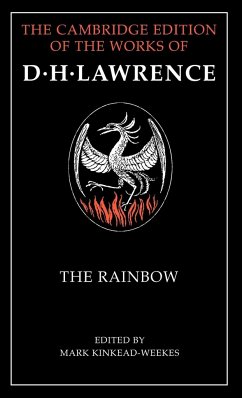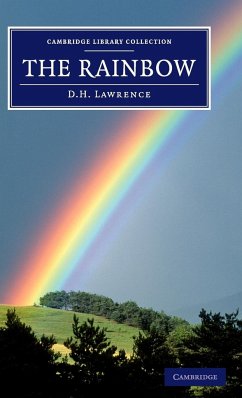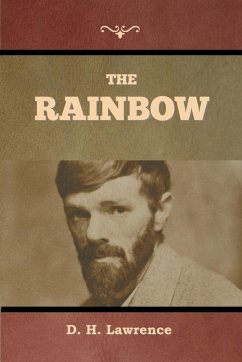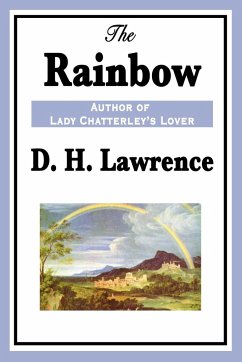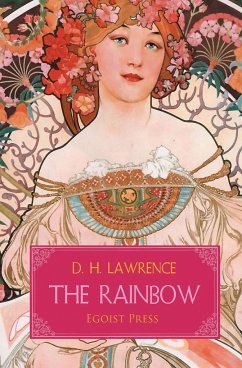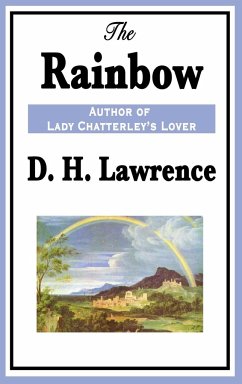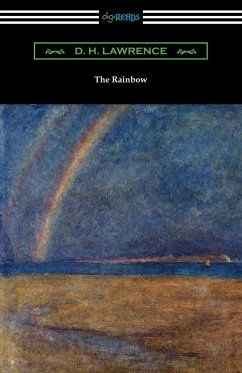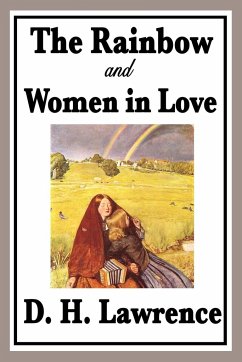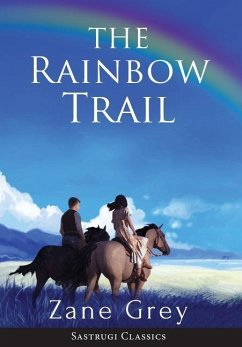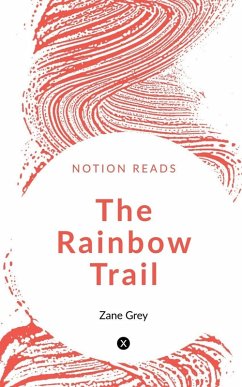
The Rainbow
Versandkostenfrei!
Versandfertig in 1-2 Wochen
20,99 €
inkl. MwSt.

PAYBACK Punkte
10 °P sammeln!
The Rainbow is considered to be one of D. H. Lawrence's finest works. Covering the pre-World War I period from about 1840 to 1905, the novel explores the relationships between three generations in the Brangwen family, describing in the process the emergence of English society from the Victorian period and its entrance into the modern period. Lawrence shows how characters are determined in part by the time and place in which they live, and he also dramatizes how they struggle to reconcile conflicting feelings and impulses. The Rainbow was followed by a sequel, Women in Love, in 1920. David Herb...
The Rainbow is considered to be one of D. H. Lawrence's finest works. Covering the pre-World War I period from about 1840 to 1905, the novel explores the relationships between three generations in the Brangwen family, describing in the process the emergence of English society from the Victorian period and its entrance into the modern period. Lawrence shows how characters are determined in part by the time and place in which they live, and he also dramatizes how they struggle to reconcile conflicting feelings and impulses. The Rainbow was followed by a sequel, Women in Love, in 1920. David Herbert Richards Lawrence was an English novelist, poet, playwright, essayist and literary critic. His collected works represent an extended reflection upon the dehumanizing effects of modernity and industrialization. In them, Lawrence confronts issues relating to emotional health and vitality, spontaneity, and instinct.





